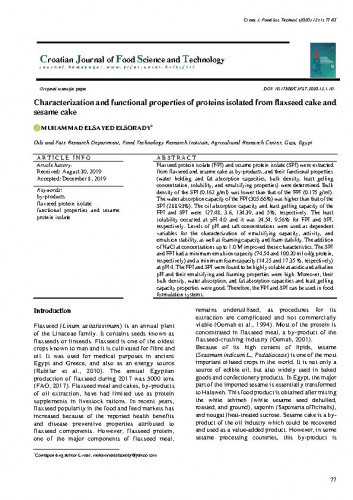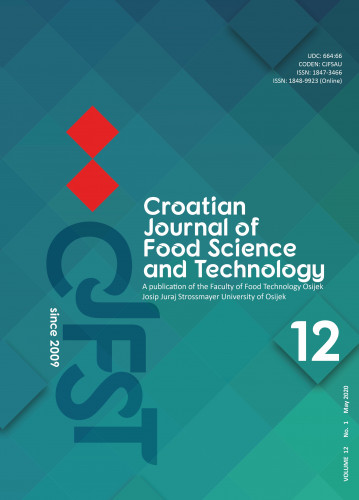Flaxseed protein isolate (FPI) and sesame protein isolate (SPI) were extracted from flaxseed and sesame cake as by-products, and their functional properties (water holding and fat absorption capacities, bulk density, least gelling concentration, solubility, and emulsifying properties) were determined. Bulk density of the SPI (0.162 g/ml) was lower than that of the FPI (0.175 g/ml). The water absorption capacity of the FPI (305.66%) was higher than that of the SPI (288.93%). The oil absorption capacity and least gelling capacity of the FPI and SPI were 127.48, 3.6, 134.39, and 5%, respectively. The least solubility occurred at pH 4.0 and it was 24.54, 9.56% for FPI and SPI, respectively. Levels of pH and salt concentrations were used as dependent variables for the characterization of emulsifying capacity, activity, and emulsion stability, as well as foaming capacity and foam stability. The addition of NaCl at concentrations up to 1.0 M improved these characteristics. The SPI and FPI had a minimum emulsion capacity (74.54 and 100.20 ml oil/g protein, respectively) and a minimum foam capacity (14.25 and 17.35 %, respectively) at pH 4. The FPI and SPI were found to be highly soluble at acidic and alkaline pH and their emulsifying and foaming properties were high. Moreover, their bulk density, water absorption, and fat absorption capacities and least gelling capacity properties were good. Therefore, the FPI and SPI can be used in food formulation systems.
Sažetak

 Croatian journal of food science and technology : a publication of the Faculty of Food Technology Osijek : 12,1(2020) / editor-in-chief Jurislav Babić.
Croatian journal of food science and technology : a publication of the Faculty of Food Technology Osijek : 12,1(2020) / editor-in-chief Jurislav Babić.